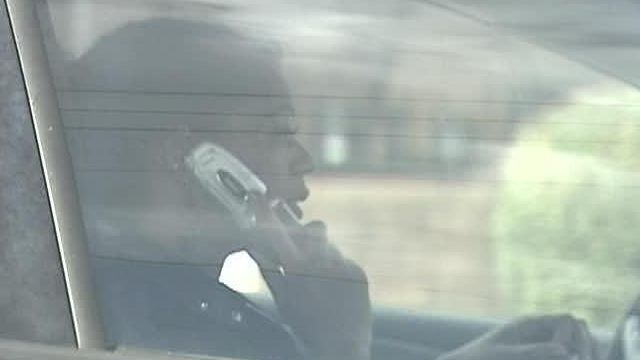Local News
Tougher DWI, Cell Phone, Seat Belt Laws Take Effect Today
New North Carolina laws taking effect Friday require young drivers to hang up their cell phones and all back seat passengers to buckle up.
Posted — UpdatedRALEIGH, N.C. — New North Carolina laws taking effect Friday will require young drivers to hang up their cell phones and all back seat passengers to buckle up.
Another one may also keep judges from throwing out as many drunken-driving cases.
"We know that this is going to save lives," Craig Lloyd, executive director of the North Carolina chapter of Mothers Against Drunk Driving, said of the sweeping driving-while-impaired changes.
Other laws that go into place Friday lower the sales tax, broaden restrictions on sex offenders and attempt to keep protesters away from military funerals.
Drivers under the age of 18 will now be barred from using cell phones while driving, except when talking to police or their parents. Hands-free phones aren't exempt.
Teenagers who break the law can face a $25 fine and have their probationary driving period extended for six months.
Vehicle safety experts and parents worry that young people can be more focused on their phone calls than on traffic. There are similar restrictions in place in a dozen states.
"The cell phone is a major, major distraction, and teenagers have very short attention spans and are prone to all kinds of multitasking," said Tom Crosby with the AAA Carolinas motor club, which backed the law. "For a teenager they would consider that normal behavior. For the rest of us, we think it's very dangerous."
Motor vehicle accidents are the leading cause of death for North Carolinians between the ages of 15 and 17, according to a state panel that investigates child fatalities. A study in a British medical journal found that phone-using motorists are four times more likely to be involved in an accident requiring a hospital visit.
Changes starting Friday also seek to ensure that prosecutors and judges across North Carolina handle drunken-driving cases consistently. There are also new crimes or penalties for drunken drivers whose accidents cause serious injuries or death.
Breathalyzer data showing a driver's blood alcohol content at or above the legal limit -- usually 0.08 percent -- will now be considered evidence of impaired driving. Results of an eye pupil test common at road checkpoints and more expert testimony will be admissible in court, too.
The changes follow reports that raised questions about whether dismissals or reductions in drunken-driving cases were arbitrary or part of back-room dealing with defense attorneys.
Now prosecutors will have to explain in writing why a DWI charge was reduced or dismissed, and court clerks will have to collect additional information on these cases for analysis.
The paper trail is "really going to hold people more accountable," MADD's Lloyd said.
Raleigh attorney Bob Hensley, who represents suspected drunken drivers, said the extra paperwork could delay these cases in an already backlogged court system.
"It's actually going to harm the justice of trying DWI cases, simply because the state won't be able to try them in an expeditious manner," he said.
The new drunken driving laws, prompted by recommendations of a task force created by Gov. Mike Easley, also makes it unlawful for people under 21 to drink alcohol. Before it was only illegal for underage drinkers to possess alcohol. Beer keg purchases now will require a permit that supporters say will discourage adults from obtaining alcohol for minors.
A new seat belt law requires all passengers -- not just young people or those in the front seat -- to buckle up. Before Friday, seat belts or safety seats were required for anyone under 16 or any front-seat passenger. Drivers could face $10 fines if adult back-seat occupants aren't buckled starting next July. Until then, police officers will hand out warnings.
Consumers will see the sales tax rate on most non-food goods fall from 7 percent to 6.75 percent, meaning a break of 25 cents on every $100 in purchases. In Mecklenburg County, the rate will now be 7.25 percent.
An additional quarter-cent reduction is set for July.
Other new laws that take effect Friday:
- bar future registered sex offenders from living within 1,000 feet of a school or daycare facility or volunteering in child-related activities.
- prompt a possible disorderly conduct charge against anyone who tries to disrupt a funeral or memorial service. The law was passed in response to protests by members of an anti-gay church at funerals of slain soldiers.
Copyright 2024 by The Associated Press. All rights reserved. This material may not be published, broadcast, rewritten or redistributed.





